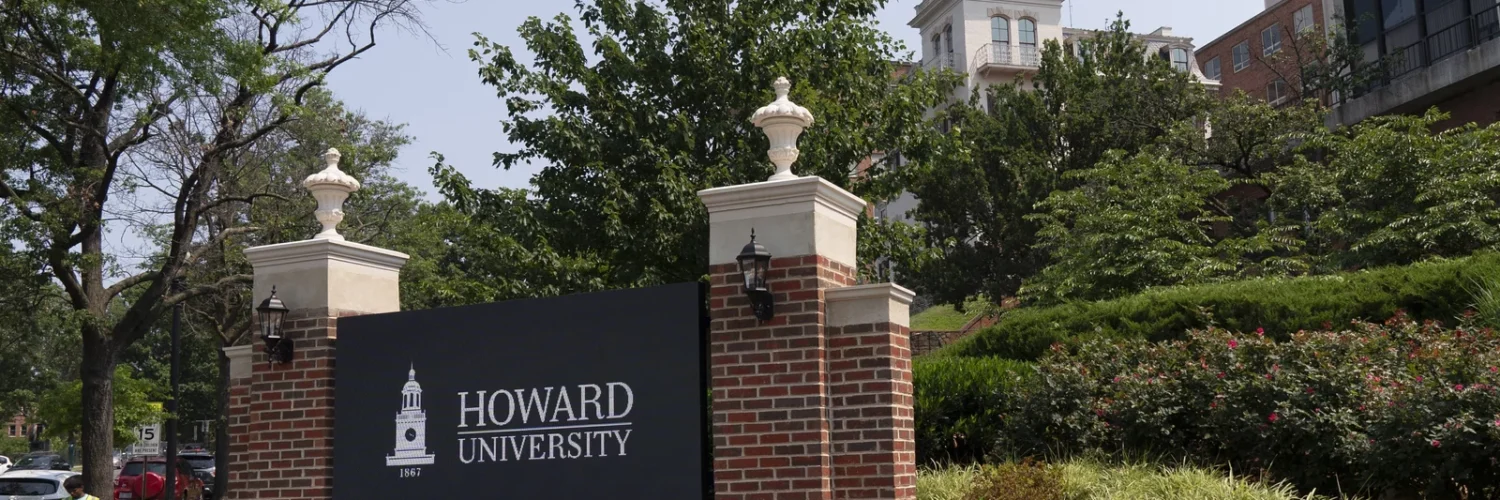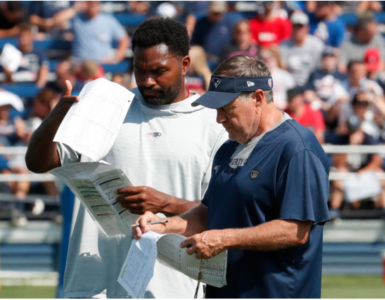If your teachers are coming in and out of the doors on a yearly basis, then you don’t have stability; without stability, then you cannot build a good university!
This was the rallying cry as students and faculty at Howard University joined collectively to rally behind non-tenured faculty as they shared their experiences facing difficult working conditions at the university.
Months after a nonviolent occupation of Howard University’s student center, Blackburn in protest of student housing conditions, Howard’s community is once again awakened by protests.
On March 18, non-tenured faculty, tenured faculty members, and adjuncts gathered around the flagpole in the yard, the center of Howard’s main campus.
In solidarity, they expressed the context behind their immediate concerns they face as faculty at Howard University. In sharing their stories, they revealed the uneasiness that comes with having to choose between remaining at a job that you love with a community that you love and being able to provide for your family.
Standing underneath the flagpole with a megaphone in his hand was Cyrus Hampton, a professor of the English Department and member of the contingent faculty. He provided critical background to what has led to this rally. He explains what is described as the “seven-year rule.”
“The rule is if a lecturer has been teaching at Howard for seven years, they must go. It doesn’t matter if the department or the students want them…They’ll tell you that the seven-year rule lets them keep their best teachers, but how? How does having to fire a teacher let you keep a teacher…They’ll tell you that the seven-year rule lets them get rid of teachers they don’t want, but then why after seven years do, they keep hiring the same people as adjuncts who’re paid less with no benefits to teach the same class,” Hampton told the crowd.
The seven-year rule is part of several issues that non-tenured faculty and adjuncts face. This rule, in conjunction with a lack of a bargaining agreement, has led to faculty following the lead of their students. In a brief interview, Sean Parris, instructor for the English department’s first-year writing courses, explained the issue with the bargaining process.
“The faculty, way before I joined Howard, wanted to unionize and since then they still haven’t been given a contract…so there’s a bargaining unit that forms, but the administration has been totally unwilling to concede to the points of why they unionized…” Parris explains
It is because both the language of the seven-year rule, as well as the University’s negligence regarding a bargaining agreement are what Professor Jackson, Howard lecturer, and alum, describes as the “microcosm” of a much larger issue than we are going to continue to confront.”
There seems to be a lack of institutional support, yet there is much institutional strain; moreover, the brunt of the strain seems to be upon the shoulders of the students and the faculty. This strain has a real-life impact.
Now, in front of the administration building, a symbol of power, in a testimony, a Howard lecturer for the English department and new mother shares her troubles getting approved parental leave.
“I received misinformation for how to apply for a parental leave, everywhere else we have learned have clear policies, but there is no documentation at Howard…I formally applied for my family leave in May, my request sat in the Provost office for over five months…it was downright frightening to wonder if our newborn babies would lose health care in the first fragile months of their lives…my salary stopped until the Provost responded to my request.”
In a student testimony, Atara, a sophomore theater major, shares how this rally awakened her eyes to the realities of her teachers.
“For the longest time, I was living only in my own experience. But what I realized, I was starting to pick up on the conversations with my professors, I would see them every morning and my professors already look dog tired…It was rough because after some time I started realizing the faculty that I enjoyed being around stopped showing up because they needed to go somewhere that cared about them…”
The strain that Howard University bestows upon their community is quite heavy. Faculty are left scrambling in order to support their families and students bear witness to teachers having to leave because of the lack of support which, in turn, leaves the students to feel unsupported as well. It is all a slippery slope.
It was not too long ago where Howard University was summoned to respond to the crisis of their students. Now, they are called to atone for the crisis of their faculty. If it’s one thing the Howard community will do is unify because it takes social movements to make social change. After last semester, Howard can no longer be inconspicuous; there is a demanding community with their eyes focused on the actions of the administration. The following weeks will tell what’s to come. But, in the meantime, seek the stories of the faculty and listen just as they’ve done for Blackburn.
Howard University, we see you.










Recent Comments